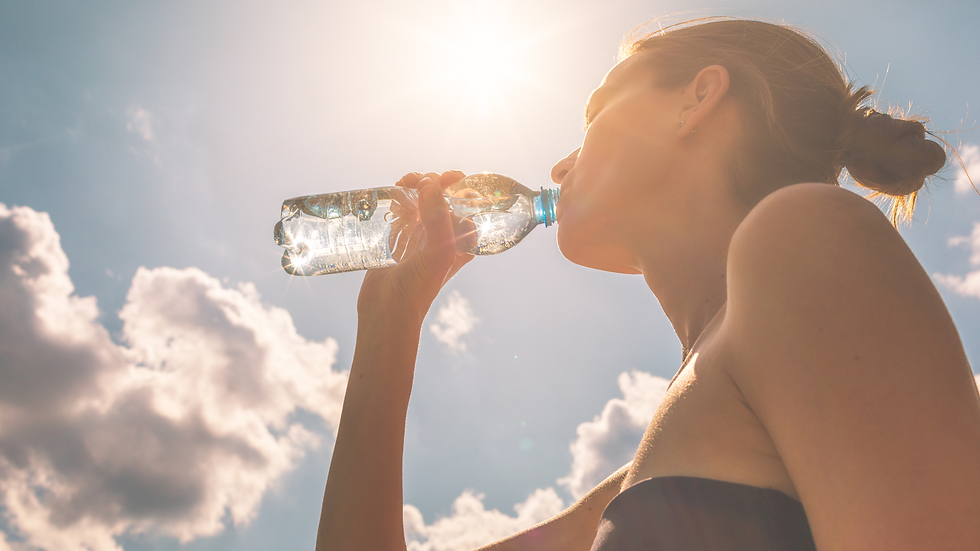Your Body’s Many Cries for Water
- Jennifer Dillman
- Oct 30
- 2 min read
Your thirst mechanism is not as smart as you think.

Most people assume that if they’re not thirsty, they’re hydrated. But here’s the truth: thirst is one of the last signs of dehydration.
By the time you actually feel thirsty, your cells are already in “survival mode” — tightening their membranes, hoarding water, and slowing down energy production. It’s a quiet crisis that starts long before the dry mouth stage.
Why your body confuses thirst with hunger
Dehydration affects the brain first — and the brain is 85% water. When it doesn’t have enough, it goes looking for energy the only other way it knows how: food. That’s why sugar cravings and “false hunger” are often just the body’s way of saying, “Hey, I need water, not a snack.”
Next time that mid-afternoon craving hits, try drinking a glass or two of water before raiding the pantry. You might be surprised how often that craving disappears.
The ripple effect of low-grade dehydration
Even mild dehydration can cause:
Fatigue and low motivation
Brain fog and poor concentration
Irritability and anxiety
Headaches and joint aches
Cravings and sluggish digestion
Your blood gets thicker, your lymph slows down, and detox pathways back up. It’s like trying to run a high-performance engine without enough oil — everything grinds just a little harder.
Water: the missing nutrient
Here’s a simple truth that gets overlooked in the wellness world: no supplement, herb, or detox plan can work well if you’re dehydrated. Water is the original nutrient. It moves everything — nutrients, hormones, waste, even emotions. (Yes, your nervous system depends on a saline solution to send signals!)
When you’re hydrated, every system in your body works more efficiently. Your digestion improves, your mood steadies, your skin glows, and your brain clears.
How much water do you really need?
A simple rule: drink half your ideal body weight in ounces per day. If you should weigh 160 pounds, that’s about 80 ounces — or ten 8-ounce glasses.
Add a pinch of sea salt or a squeeze of lemon to improve absorption (pure water alone can move through you too quickly if your electrolytes are low). And if you’re drinking coffee, soda, or alcohol, add an extra cup and a half of water for each dehydrating beverage.
Check your “cell status”: grape or raisin?
Think of your cells like grapes — plump, juicy, and full of life when hydrated. As dehydration sets in, they shrivel like raisins, losing flexibility and function.
Ask yourself: Are my cells living like grapes, or like raisins? Your skin, energy, and mood will tell the story.
The takeaway
If you’ve been chasing fatigue, sugar cravings, or mood dips, try starting with water. Not fancy supplements or detox teas — just consistent hydration.
Your body is whispering all the time; most of us have just forgotten how to listen. Maybe those afternoon slumps and late-night cravings aren’t “bad habits” after all — maybe they’re just your body’s many cries for water.
If your body’s been whispering for water—and you’re ready to start listening—come experience what real cellular hydration feels like.
Book a BioCharger session at Charge Wellness and feel the difference in your energy, clarity, and mood!


